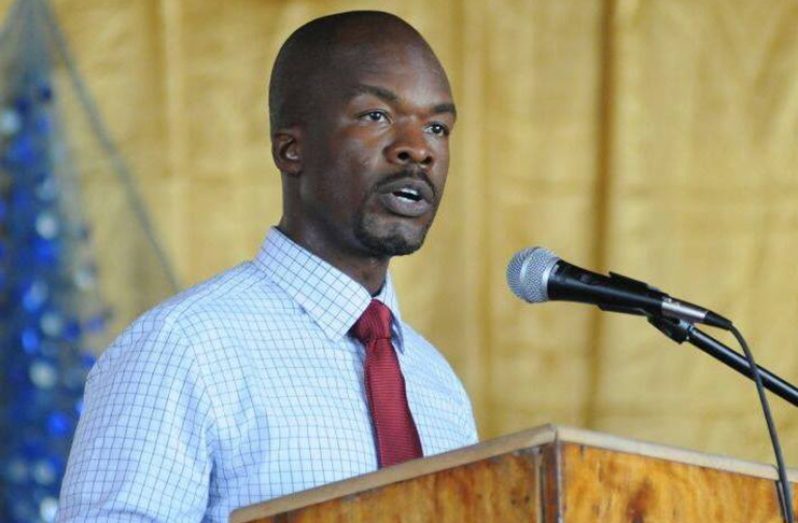– Psychologist looks at mother who killed toddler
THERE is need for a community mental health movement in Guyana as the mental health stigma is pervasive in society and is internalised by individuals, often resulting and manifesting itself in several different forms.
This is the view of Psychologist Wil Campbell, in the aftermath of a mother of two who was arrested on Saturday after stabbing her three-year-old son to death at Foulis, East Coast Demerara.

The mother, 26-year-old Brenda Ferreira, a housewife, was seen running behind her son Ramdeo Mahadeo with a knife in her hand, and eyewitnesses claimed to have seen the woman thrusting the knife repeatedly into the child’s back.
The psychologist said in order to understand how stigma interferes in the lives of individuals with mental health and drug-use conditions, it is essential to examine current definitions, theories, and research in this area, especially in Guyana.
He said that when people become comfortable discussing mental health issues, persons can then notice various symptoms in others and even their neighbours and encourage them to seek the necessary specialists.
“As it is now, if we see our neighbour behaving in a strange manner, we mumble among ourselves and we leave them alone, because nobody is comfortable raising this issue and so after something happens, when it blows up, then people say you know there was always something wrong with that person, the person always seems to be a little off; nobody recognised the mental illness and nobody was willing to raise the issue, so we have to make people comfortable with dealing with these issues,” the psychologist said.
He explained that social stigma is structural in society and can create barriers for persons with a mental or behavioural disorder.
Structural means that stigma is a belief held by a large section of society in which persons with the stigmatised condition are less equal, or are part of an inferior group. In this context, stigma is embedded in the social framework to create inferiority.
This belief system, he noted, may result in unequal access to treatment services or the creation of policies that disproportionately and differentially affect the population. Social stigma can also cause disparities in access to basic services and needs.
Further, Campbell said mental health issues need to be promoted until they are commonplace to the point where different forms of mental illnesses become household names.
“As long as there is that taboo, that mystique, that superstition surrounding mental health issues, it will be hard to say to someone, ‘well, you know if you feel this is happening to you, you need to go to the psychiatric ward,’ then people are not going to pay attention and no one is going to be motivated or bold enough having other people see them visiting the psychiatric ward,” he explained.
The psychologist suggested that mental health conditions are pervasive and the burden of these conditions is expected to grow. As such, individuals need to receive the specialised treatment they need, as individuals often do not seek services and frequently do not remain in care once they begin.

While stigma remains evident in society, within individuals themselves, and among health professionals, the ethical problem of health professional stigma places an additional barrier on clients who seek needed mental health services.
Further, Campbell who is also a professional counselor, said mental health practitioners must be trained at a higher level than is currently done.
“We need people with PHDs and the least is Masters Level in psychology and psychiatry, so that treatment is widely available. Even though health-seeking behaviours are not commonplace, those few practitioners that are available are swamped,” the psychologist said.
Noting that more focus should be placed on training, he said that the University of Guyana is establishing a department of psychology which is a great move to churn out well trained specialists emerging from the institution.
Adding that misplacing persons in the field will not have any positive results, he said social workers are not psychologists and psychologists are not psychiatrists.
“We need people at various levels and various branches of professions to be trained, so that people can get help at the point of their need,” he said.
Campbell holds a Masters in psychology and even though he conducts general counselling, he focuses on marriage and family.


.jpg)











